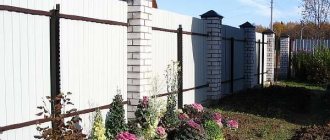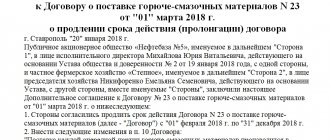What is a summer cottage intended for by law?
According to Law No. 217-FZ, the site in SNT is intended only for non-commercial activities of citizens.
This means that they can grow crops on it for their own needs or for recreation. If the grown crop is intended for sale, the owner of the plot may face a fine. Residential and non-residential (outbuilding) buildings can also be erected on the site. At the same time, in residential buildings you can register with SNT (if it is SNT and not ONT).
Note! It is impossible to build permanent houses on the territory of ONT (gardening partnerships).
ConsultantPlus experts talk about the peculiarities of constructing residential buildings on garden plots. Get free trial access to the system and proceed to the explanations. And at this link you can find out how to register at your place of residence at your dacha.
Outbuildings include:
- sheds;
- baths;
- greenhouses;
- awnings;
- wells;
- cellar
If the building is not permanent (does not have a foundation and is not connected to utility networks), then it does not need to be registered with Rosreestr. Capital buildings need to be formalized.
Controls
After registration, SNT members hold their first meeting, at which they approve the Charter and elect a chairman. He will represent their partnership as a legal entity. Representatives are also elected, whose responsibilities include: helping the chairman take care of the partnership, signing documents with him (sharing responsibility), collecting contributions, maintaining records and control. The elected chairman of the SNT must be not just a good person or an experienced gardener. He must know office work, navigate legal issues, be able to organize fire safety and much more, that is, be a good leader. His responsibilities include monitoring the work of all employees of the partnership (accountant, electrician, watchman and others). He must observe himself and require others to comply with the rules prescribed in the charter, enter into agreements, for example, to build roads to the lands of the partnership, open bank accounts, monitor the condition of the territory entrusted to him and inform the members of the SNT about upcoming events in the partnership.
What is common property?
Common use property includes objects and equipment located on the territory of SNT or ONT, not related to a specific site and used by all members of the partnership.
Only the general meeting of members of SNT (ONT) has the right to dispose of common property.
In addition to general facilities and equipment, there are also general purpose land plots. How to use them is also decided by the general meeting.
All members of the SNT have the right to use such property on equal terms. But everyone must also pay the same for its maintenance, regardless of whether the particular owner of the site actually used this object.
Land for gardening partnerships
The first prototypes of SNT appeared almost a hundred years ago in the young Soviet state. They were called gardening partnerships. Even then, the activities of these organizations were based on certain rules. Thus, their members were required to pay dues, the size of the plots was strictly regulated (this is the familiar 6 acres), and the area of buildings erected on them was also regulated. Now a voluntary non-profit gardening partnership can be organized by a group of people from 3 people. It is important to know that SNT lands should only be from the “for public use” category. These are mainly plots of agricultural land located outside the city limits. The Land Code of 1991 contains a clause prohibiting the organization of horticultural non-profit partnerships on lands of any other category. The same Code states that in the future, lands owned by SNT may become the property of members of the partnership. According to Article 12 of Federal Law No. 66, adopted in 1998 and amended in 2011, zoning of territories must be carried out in Russia. The authorities can allocate land for SNT only after this process, and only in certain zones where the construction of roads, power lines and other similar objects is not planned.
Can the board develop its own regulations?
The management of SNT is obliged to develop a charter of the partnership, drawn up taking into account the norms of Law No. 217-FZ. These two documents (charter and law) are sufficient to regulate all aspects of the activities of any SNT. Local documents are not required, since in order to be legal, they in any case must duplicate the provisions of Law No. 217-FZ.
The procedure for payment and the amount of membership fees is also determined by Law No. 217-FZ and the charter. Payments are made only to the bank account.
In order to determine the boundaries of the SNT, there is land management documentation. Please note that only one SNT (ONT) can be created on the territory of one gardening or vegetable gardening area.
At the same time, land owners should keep in mind that joining the SNT is a voluntary procedure. Often this is more profitable for the summer resident himself, but if he does not have such a desire, then no one has the right to force him to join a partnership (Part 6 of Law No. 217-FZ).
To find out what the procedure for becoming a member of a gardening partnership is, follow the link to receive free trial access to K+. And if you want to leave the SNT members, then first find out the consequences of such a withdrawal. To do this, get a free trial access to the system.
The Tax Service requires SNT to bring its legal address into compliance with the law
Very often in SNT there is confusion with the legal address and location. Sometimes the legal address is so unclear that sending official letters to it is the same as writing “to your grandfather in the village.” In this regard, the tax service sends out letters demanding that the legal address of SNT be brought into compliance with current legislation. How to do this and what should be the legal address of the gardening partnership?
What is the difference between the legal address and the location of SNT?
The location of SNT is the place where the gardening partnership is actually located. It is limited to the municipality. For example, mountains. Nizhny Novgorod or Nizhny Novgorod region, Borsky district, village. Sosnovka. The location of the SNT should be indicated in the Charter of the partnership.
The legal address of SNT is a specific address that is registered in the Unified State Register of Legal Entities. That is, it will not be possible to get by by indicating only the municipality. You need to write down the full address (municipal entity, street, house, apartment) so that letters can arrive. In this case, the legal address and location of the SNT may not coincide. It is understood that the executive body of SNT (board) is located at this address. The simplest thing is to indicate the registration address of the chairman as the legal address of the gardening partnership. It is not necessary to reflect it in the SNT Charter.
How can SNT register a new legal address?
We recommend that you check whether your legal address is correct. If it does not meet the requirements that we indicated above, then you need to change it
. This will help avoid complaints from inspection authorities, including tax authorities. In addition, official letters and notifications will be sent to a clear and specific legal address, to which you can quickly respond. Thus, it will be to some extent easier for SNT itself to work if the correct legal address is indicated.
Why is SNT the correct legal address?
Civil legislation places responsibility for receiving (non-receiving) mail at the legal address on the organization.
This means that if SNT left an incorrect address in the Unified State Register of Legal Entities, indicating only the location of the gardens, if the partnership does not receive notice of the court hearing or, for example, of a proposed inspection, it will not be able to appeal the court decision or actions of authorities based on the lack of postal notification. Lawyers are ready to help you prepare documents for registering a new legal address of SNT.
You can contact us by phone: 8 (831) 416-40-50 , WhatsApp, Viber, and also leave a request for a free consultation
Leave a request for a free consultation with a lawyer
submit your application
You may be interested in:
Creation of SNT, reorganization into SNT or other association
Full legal support of SNT activities
Preparation of legal documents in SNT
Charter of SNT, making changes or preparing a new editionWorking with SNT debtors. Collection of arrears on contributions
Preparation of legal documents in SNT
Results
If any controversial situations arise regarding participation or non-participation in SNT, you must refer to the provisions of Law No. 217-FZ and the SNT charter. Members of the SNT have the right to use and dispose of common property and bear equal responsibilities for its maintenance. The owner of the site may not join the SNT if he does not have such a desire.
You can find out how land tax is calculated and paid in our “Land Tax” section.
You can find more complete information on the topic in ConsultantPlus. Free trial access to the system for 2 days.
Registration
The process of forming horticultural non-profit partnerships is as follows:
1. People who decide to create their own non-profit gardening partnership submit applications to the governing bodies.
2. According to zoning, the authorities allocate land for a new gardening partnership.
3. SNT registration is carried out.
Until the third point is fulfilled, there is no garden partnership, which means there are no members, and accordingly, there are no rights to the land.
This process may not be very fast, because during registration it is necessary to comply with a number of formalities, such as approval of a development project, organization project, transfer of land into the ownership of SNT, approval of the list of founders, and so on. If any item is not fulfilled, registration will not be carried out.
Leaving the gardening partnership
If desired, each landowner can withdraw from the SNT. What does this entail?
Legally, nothing wrong. Such a person retains his land plot, he can continue to use the SNT infrastructure (lights, roads and other public facilities), and carry out gardening activities on his plot.
What an individual landowner should not do:
- go to meetings;
- obey their decisions;
— take part in public events of SNT;
- pay membership fees.
What an individual landowner is required to do:
— draw up agreements with SNT for the use of electricity, water, roads and other public facilities;
— pay for the use of all SNT infrastructure facilities;
- demand your share of the SNT property acquired with the money of SNT members, in proportion to your contributed funds.







